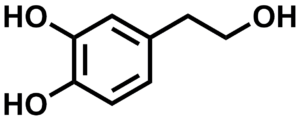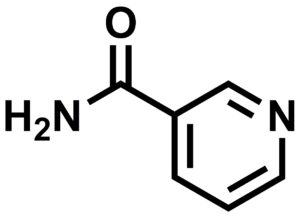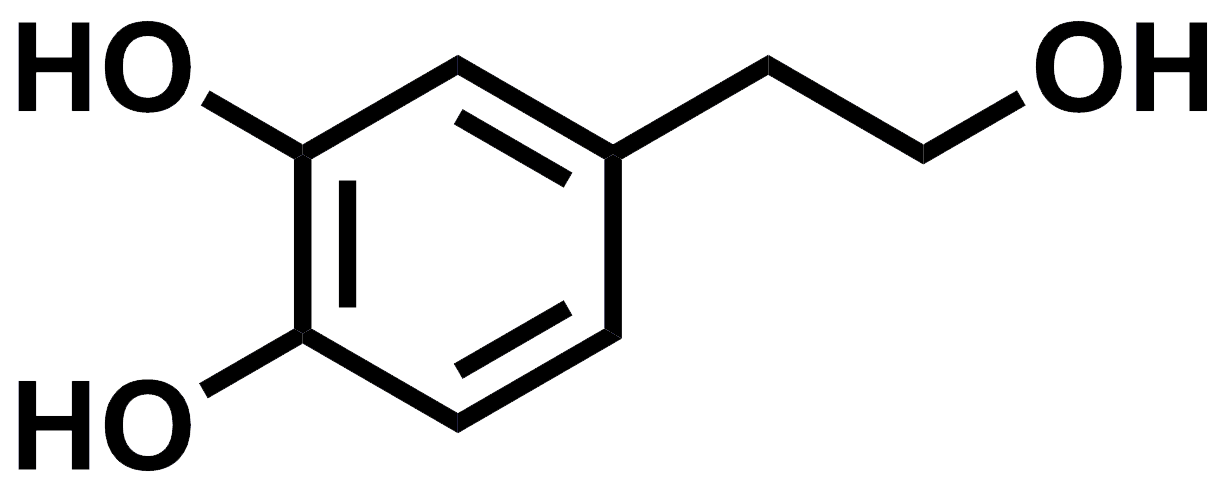What is Hydroxytyrosol and Olive Extract
hydroxytyrosol, An antioxidant found in olive oil, protects blood lipids (fats) from
oxidative damage
Hydroxytyrosol is a powerful polyphenol which occurs naturally in the olive fruit, pulp, leaves and mill waste waters. Chemically, hydroxytyrosol is described as 4-(2-hydroxyethyl)-1,2-benzendiol, with an empirical formula C8H10O3. Hydroxytyrosol is a well-known minor component found in Extra Virgin Olive Oil, which is derived from hydrolysis of the polyphenol oleuropein during olive maturation and olive oil storage. The compound plays an important role (amongst other minor components) in the complex and varied flavor of olives and olive oil.1 It is also a vital component which largely adds to the stability of olive oil.2 Hydroxytyrosol is hydrophilic, and absorbed in a dose-dependent manner in humans, with absorption occurring in the small intestine and colon. Uniquely, hydroxytyrosol is the only polyphenol which is able to cross the blood brain barrier, which allows it to have a significant action to scavenge free radicals in the nervous system.
Health Benefits
Hydroxytyrosol has a potent antioxidant activity – it has one of the highest know ORAC (oxygen radical absorbance capacity) results known for a natural antioxidant. (ORAC is a method used to determine the antioxidant capacity of a food or chemical substance).
There is also evidence related to the health benefits of hydroxytyrosol in the following areas:
Anticancer activity
Hydroxytyrosol has the capacity to inhibit proliferation and promote apoptosis of several tumour cells.1 Therefore, it has been suggested that hydroxytyrosol may have anticancer effects. The exact mechanism of these effects is not well defined, and research continues in this space.
Anti-inflammatory activity
Research has shown that hydroxytyrosol can reduce the production of cytokine tumor necrosis factor alpha (TNF alpha) in animal models of inflammation.2 Animal based research has also shown that hydroxytyrosol may be able to reduce acute inflammation and associated pain.
Antimicrobial activity
In vitro experiments have shown that hydroxytyrosol has antimicrobial properties against infectious respiratory and gastrointestinal pathogens.1 It is also known that hydroxytyrosol has activity against gram positive and gram-negative bacteria. In general, phenolic compounds have been reported to have wide antimicrobial activity, such as antibacterial, antiviral and antifungal effects.2 The exact mechanism by which hydroxytyrosol exerts its antimicrobial action is not well known.
Antithrombotic activity
A human study showed that hydroxytyrosol was able to lower serum thromboxane B2 levels, leading to an anti-aggregatory platelet effect. Other research supports this finding, showing that hydroxytyrosol significantly reduces platelet aggregation.1
Antiatherogenic capacity and cardioprotective effect
It is known that hydroxytyrosol is a powerful scavenger of free radicals which allows for the reduction in oxidation of low-density-lipoproteins (LDL), potentially reducing the risk of atherosclerosis.
Retino-protective activity
Hydroxytyrosol may play a role in reducing the risk of age-related macular degeneration, however further research is required in this area to determine the exact mechanism and importance of this preliminary research finding.
Skin related effects
It is believed that oxidative stress plays a major role in UVA-induced protein damage to the skin. Preliminary research shows that hydroxytyrosol can work to prevent such UVA damage in melanoma cells.
Where I can Buy Hydroxytyrosol ?
- You can buy Olive Extract (leaf or fruit) which normally have Hydroxytyrosol 10% or 50% maximum as traditional way.
- High Concentration (99%) based on Fermentation Methods (Biosynthesis) from Hangzhou Biopak (Click to Enter) as your alternative choice



